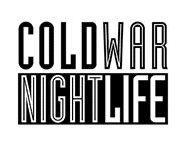William Orbit
LEAF 2013, London
10 November 2013
 In his next life, William Orbit is going to be a university professor. A particularly English kind of genius, he appears on stage with course notes that he doesn’t read and muses about the relationship between notation and music at the end of the universe. Along the way, he shows off a drum machine that is actually a machine that plays drums, explains the formal structure of pop hits, tells the history of his work with Malcolm McLaren and Madonna, and shares videos of Soviet trains crashing. An engaging and charmingly self-deprecating speaker, students will love him. A tweed blazer with elbow patches is all that stands between him and tenure at a top college.
In his next life, William Orbit is going to be a university professor. A particularly English kind of genius, he appears on stage with course notes that he doesn’t read and muses about the relationship between notation and music at the end of the universe. Along the way, he shows off a drum machine that is actually a machine that plays drums, explains the formal structure of pop hits, tells the history of his work with Malcolm McLaren and Madonna, and shares videos of Soviet trains crashing. An engaging and charmingly self-deprecating speaker, students will love him. A tweed blazer with elbow patches is all that stands between him and tenure at a top college.
Well, that and Britney Spears. As one of the UK’s leading producers, Orbit is in demand among the upper tiers of commercial pop music as a songwriter, studio fixer and remixer. He wouldn’t say this himself, but there is a strong argument that he rescued Madonna’s career with her Ray of Light album. Britney’s comeback needed some oomph, as well, so he recently found himself Stateside working on her next single, Alien. The regularity of such assignments will make it difficult to teach normal classes, and he’s given up drinking, so the quadrangle of an appropriately prestigious university will have to wait for another day.
 Orbit’s appearance at the London Electronic Arts Festival was billed as a show, rather than a seminar, but it moved between both ends of that spectrum like the needle on a VU meter. Orbit came to the stage with Torch Song and Bassomatic songs, reaching back more than two decades to his early club hits. In the course of the evening, he shared a remix of Falling Free made for Madonna (revealed as one of his favourite tracks), Purdy from his My Oracle Lives Uptown album and snippets from the next Strange Cargo effort (expected in the New Year). They are all distinctively Orbit-treated tracks, impressed with sublime style. Although he makes a living sharing his creativity with household-name artists, Orbit’s output is often on the alternative or experimental side – like Brian Eno without his oblique strategy cards.
Orbit’s appearance at the London Electronic Arts Festival was billed as a show, rather than a seminar, but it moved between both ends of that spectrum like the needle on a VU meter. Orbit came to the stage with Torch Song and Bassomatic songs, reaching back more than two decades to his early club hits. In the course of the evening, he shared a remix of Falling Free made for Madonna (revealed as one of his favourite tracks), Purdy from his My Oracle Lives Uptown album and snippets from the next Strange Cargo effort (expected in the New Year). They are all distinctively Orbit-treated tracks, impressed with sublime style. Although he makes a living sharing his creativity with household-name artists, Orbit’s output is often on the alternative or experimental side – like Brian Eno without his oblique strategy cards.
Eno certainly would have appreciated Orbit’s demonstration of a new toy, the Gogobot: a robotic machine that played rhythm on a traditional drum set with added percussion. While Torch Song collaborator Rico Conning supervised the machinery [Editor’s note: Conning is also its inventor], Orbit used it to accompany sounds issuing from his laptop. As Orbit confessed to a love for steam power, as part of a diversion into the influence of digits (fingers) on counting systems, it is perhaps a matter of time before he develops a steam-punk version.
Orbit’s manner is entertaining and informative. Perhaps there is a market for spoken-word shows with audience questions for record producers – as Kevin Smith has done on the back of his successful films and podcasts. If so, then it would be easier for Professor Orbit to schedule lectures between pop hits and Youtube experiments than to squeeze the music into end of term breaks.

